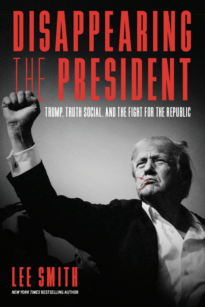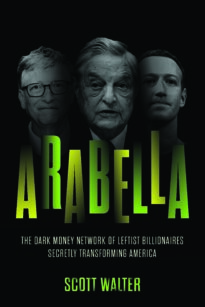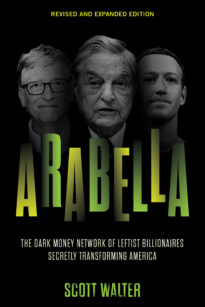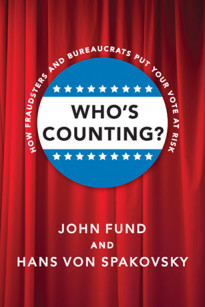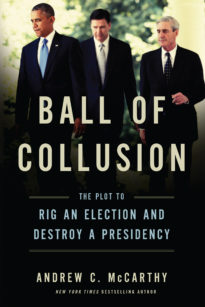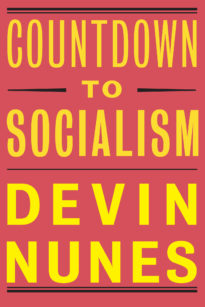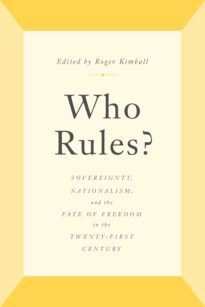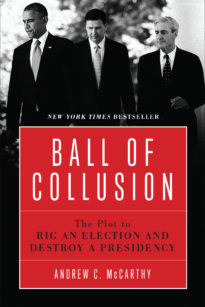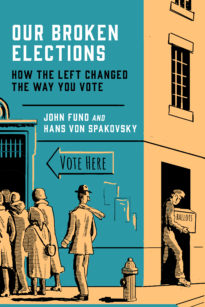Behind the deeply contentious 2020 election stands a real story of a broken election process. Election fraud that alters election outcomes and dilutes legitimate votes occurs all too often, as is the bungling of election bureaucrats. Our election process is full of vulnerabilities that can be – and are –taken advantage of, raising questions about, and damaging public confidence in, the legitimacy of the outcome of elections. This book explores the reality of the fraud and bureaucratic errors and mistakes that should concern all Americans and offers recommendations and solutions to fix those problems.
Free shipping on all orders over $40
Our Broken Elections
How the Left Changed the Way You Vote
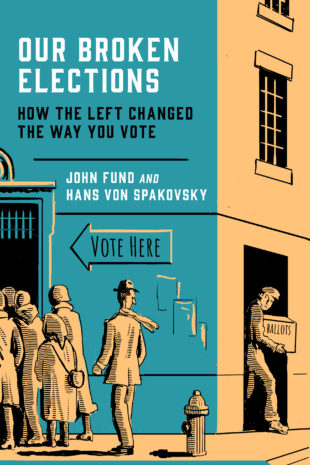
Also Purchase as e-Book
Publication Details
Hardcover / 288 pages
ISBN: 9781641772082
AVAILABLE: 11/02/2021
- Media: Request a Review Copy
- Academia: Request an Exam Copy
About the Authors
John Fund is National Affairs Columnist for National Review magazine and a contributor to the Hotline newsletter.
Hans von Spakovsky is a Senior Legal Fellow and Manager of the Election Law Reform Initiative at The Heritage Foundation and a former Commissioner on the Federal Election Commission.
Praise
Excerpt
I
t’s clear that Americans are separated not just by political disagreements but by a basic difference in how we regard voting.
Democrats gravitate toward the view that the most important value is empowering people to exercise their democratic rights, regardless of security issues, and they worry about people being denied that right.
The Democratic National Committee’s Voting Rights Institute emphasizes the need “to remove every barrier that impedes or denies an eligible vote.” High in the Democratic Party’s pantheon of heroes (unlike fifty years ago when the party had many segregationist leaders) are “activists from all over America who converged on Mississippi in the summer of 1964 to help educate and register tens of thousands of previously disenfranchised American citizens.” What they do not want to acknowledge is that the barriers that existed then are long gone and that it is easier to register and vote today than ever before in modern history.
Republicans tend to pay more attention to the rule of law and the standards and procedures that govern elections. Conservative legal scholars have noted that voters as well as election officials have an obligation to ensure that democracy works. Republicans worry publicly about elections but not with the same emphasis as Democrats. They often emphasize election integrity rather than access to the polls, but that is because they assume—correctly—that guaranteeing the security of elections does not hinder access.
In his classic 1988 book A Conflict of Visions: Ideological Origins of Political Struggles, the economist and sociologist Thomas Sowell outlined the important role that social “visions” play in our thinking. By “vision,” he meant a fundamental sense of how the world works.
Competing visions or worldviews are particularly powerful in determining how people regard issues because, unlike “class interests” or other motivating forces, they are largely invisible, even—or especially—to those who harbor them. They explain how so often in life the same people continually line up on the same sides of different issues.
For decades, public opinion researchers sought the perfect polling question that best correlated with whether someone considered himself a Republican or a Democrat. In the 1960s, Gallup finally came up with the question that has had the most consistent predictive power over the last half century: “In your opinion, which is more often to blame if a person is poor? Lack of effort on his own part, or circumstances beyond his control?” Today, as might be expected of a divided nation, these two competing views on what creates poverty are equally strong in their hold on American public opinion.
Sowell maintains that conflicts of visions dominate history. “We will do almost anything for our visions, except think about them,” he concludes. Sowell identifies two distinct visions that shape the debate on controversial issues. The first he calls the “unconstrained” vision of human nature, and the second he terms the “constrained” vision.
Those with an unconstrained vision think that if we want a society where people are enlightened, prosperous, and equal, we must develop programs to accomplish those goals and work to implement them. The focus is on results or outcomes. That would include making sure that as many people as possible vote, thus animating the ideals of democracy.
But sometimes the desire to expand voting opportunities takes on unrealistic qualities. San Francisco narrowly approved allowing noncitizens to vote in school board elections in 2018. Then in 2019, a majority of House Democrats voted to lower the federal voting age from eighteen to sixteen. A number of highprofile Democrats voted in favor of the legislation, including California Reps. Adam Schiff and Maxine Waters, New York Rep. Alexandria Ocasio-Cortez, Michigan Rep. Rashida Tlaib, and Minnesota Rep. Ilhan Omar.
“Young people are at the forefront of some of our most existential crises,” said the bill’s cosponsor Rep. Ayanna Pressley of Massachusetts. “The time has come. Our young people deserve to have the opportunity to exercise their right to vote.” Apparently, these representatives think sixteen-year-olds are mature enough to make important decisions and judgments about the political life of the country even though they are not legally considered an adult in any state, cannot sign leases or contracts, cannot be trusted to purchase alcohol, and are barely old enough in most states to get a license to drive a car.
Those with a “constrained” vision of human nature believe that the goal of reason should be not to remodel society but rather to identify “natural laws” and work within them. Such people focus on general rules and processes. In regard to elections, the constrained vision would favor setting up procedures ensuring that votes are counted accurately and fairly but not bending those procedures to increase voter participation at the cost of the integrity and security of the process.
.


